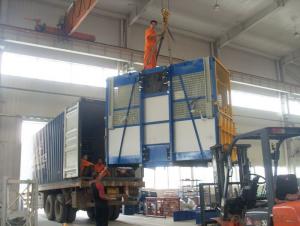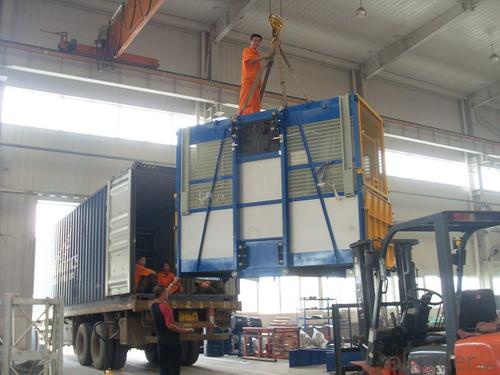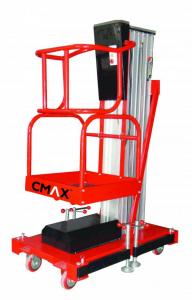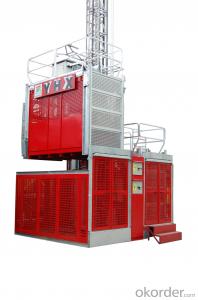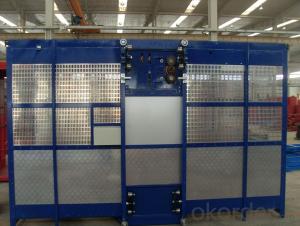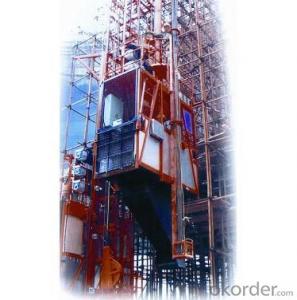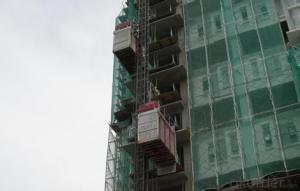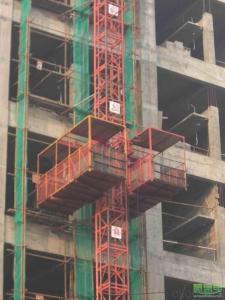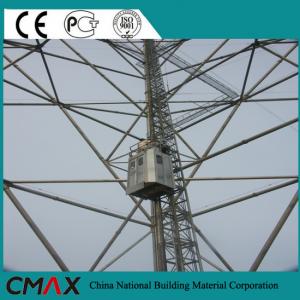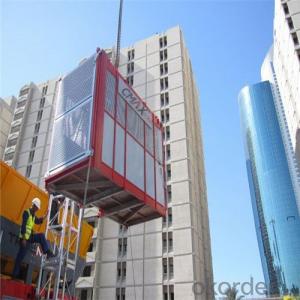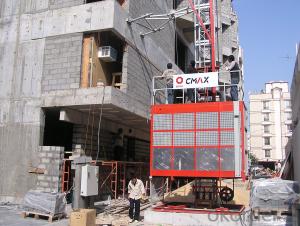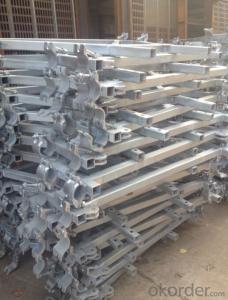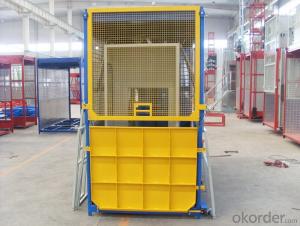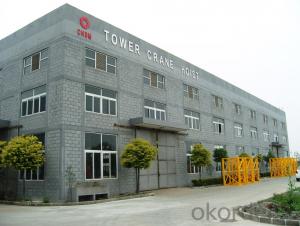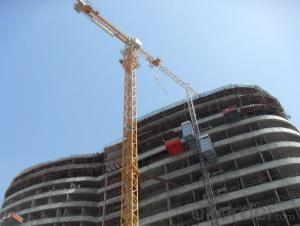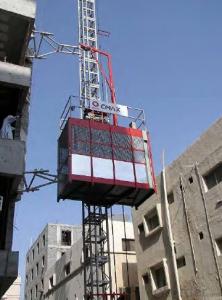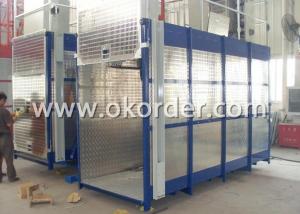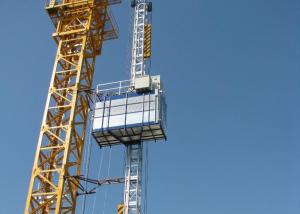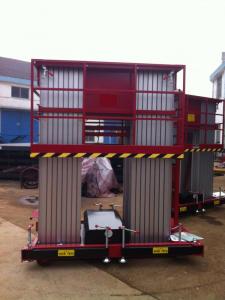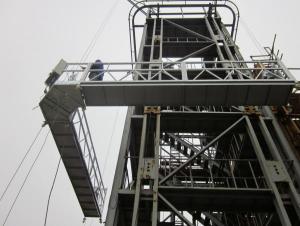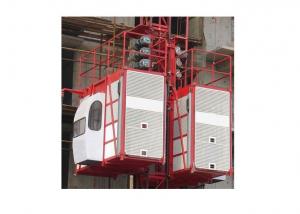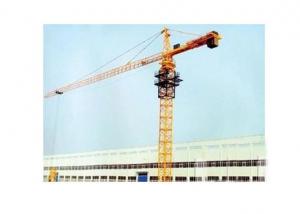Building Lifting Hoist SC Series General Hoist CE
- Loading Port:
- Shanghai
- Payment Terms:
- TT OR LC
- Min Order Qty:
- 1 unit
- Supply Capability:
- 1000 unit/month
OKorder Service Pledge
OKorder Financial Service
You Might Also Like
Specification
Construction Building Lifting Hoist SC Series General Hoist CE
We are special supplier of building hoist in China, our building hoist have been Widely exported to all over the world and won good reputation, whose payload capacity is as much as 10000kg, lifting speed can reach up to 96m/min, and the erection height reaches up to 550m., our products have been widely used for transportation for both men and cargo in field of general buildings, but also industry, electric power, mining well, oil, chemical industry etc.
SC270TD, SC270/270TD building hoist:
1). Each cage load capacity: 2700kg
2). Lifting speed: 36m/min, or 0∼ 63m/min, or 0∼ 96m/min
3). Mast section: Paint or hot dipping zinc
4). Cage: Single cage or twin cage
5). Recommended cage inner dimension(LxWxH)(m): 2.5x1.3 x2.5; 3.0x1.3x2.5; 3.2x1.5x2.5; 3.6x1.5x2.5; 3.8x1.5x2.5; 4.0x1.5x2.5; 4.2x1.5x2.5, cage dimension is according to requirement of customer and special project.
6). Motor and reducing device: Made in China, can be SEW Germany according to requirements.
7). Counterweight: With counterweight or without counterweight
8). The colors of cage: Yellow, or red, or blue
9). Other each cage load capacity for your to choose: 1000kg, 2000kg, 2700kg, or 3200kg
| Type | Payload kg | Lifting speed m/min | Motor power kW | Inverter power kW | Counter Weight kg | ||
| Low speed | Single cage no counterweight | SC200GD | 2000 | 0~46 | 3×15 | 45 | 0 |
| SC270GD | 2700 | 0~46 | 3×18.5 | 55 | 0 | ||
| SC320GD | 3200 | 0~46 | 3×22 | 75 | 0 | ||
| Twin cage no counterweight | SC200/200GD | 2×2000 | 0~46 | 2×3×15 | 2×45 | 0 | |
| SC270/270GD | 2×2700 | 0~46 | 2×3×18.5 | 2×55 | 0 | ||
| SC320/320GD | 2×3200 | 0~46 | 2×3×22 | 2×75 | 0 | ||
| Middle speed | Single cage no counterweight | SC120GZ | 1200 | 0~63 | 3×15 | 45 | 0 |
| SC200GZ | 2000 | 0~63 | 3×18.5 | 55 | 0 | ||
| Single cage with counterweight | SCD200GZ | 2000 | 0~63 | 2×15 | 30 | 2000 | |
| SCD270GZ | 2700 | 0~63 | 2×18.5 | 37 | 2000 | ||
| SCD320GZ | 3200 | 0~63 | 3×15 | 45 | 2000 | ||
| Twin cage no counterweight | SC120/120GZ | 2×1200 | 0~63 | 2×3×15 | 2×45 | 0 | |
| SC200/200GZ | 2×2000 | 0~63 | 2×3×18.5 | 2×55 | 0 | ||
| Twin cage with counterweight | SCD200/200GZ | 2×2000 | 0~63 | 2×15 | 2×30 | 2×2000 | |
| SCD270/270GZ | 2×2700 | 0~63 | 2×18.5 | 2×37 | 2×2000 | ||
| SCD320/320GZ | 2×3200 | 0~63 | 2×3×15 | 2×45 | 2×2000 | ||
| High speed | Single cage no counterweight | SC100GS | 1000 | 0~96 | 3×22 | 75 | 0 |
| SC120GS | 1200 | 0~96 | 3×22 | 75 | 0 | ||
| SC200G | 2000 | 0~96 | 3×22 | 90 | 0 | ||
| SC200GS | 2000 | 0~96 | 3×22 | 90 | 0 | ||
| Single cage with counterweight | SCD200G | 2000 | 0~96 | 3×15 | 45 | 2000 | |
| SCD200GS | 2000 | 0~96 | 2×22 | 45 | 2000 | ||
| SCD270G | 2700 | 0~96 | 3×18.5 | 55 | 2000 | ||
| SCD320GS | 3200 | 0~96 | 3×22 | 75 | 2000 | ||
| Twin cage no counterweight | SC100/100GS | 2×1000 | 0~96 | 2×3×22 | 2×75 | 0 | |
| SC120/120GS/ | 2×1200 | 0~96 | 2×3×22 | 2×75 | 0 | ||
| SC200/200G | 2×2000 | 0~96 | 2×3×22 | 2×90 | 0 | ||
| SC200/200GS | 2×2000 | 0~96 | 2×3×22 | 2×90 | 0 | ||
| Twin cage with counterweight | SCD200/200G | 2×2000 | 0~96 | 2×3×15 | 2×45 | 2×2000 | |
| SCD200/200GS | 2×2000 | 0~96 | 2×2×22 | 2×45 | 2×2000 | ||
| SCD270/270G | 2×2700 | 0~96 | 2×3×18.5 | 2×55 | 2×2000 | ||
| SCD320/320G | 2×3200 | 0~96 | 2×3×22 | 2×75 | 2×2000 | ||
| SCD320/320GS | 2×3200 | 0~96 | 2×3×22 | 2×75 | 2×2000 | ||
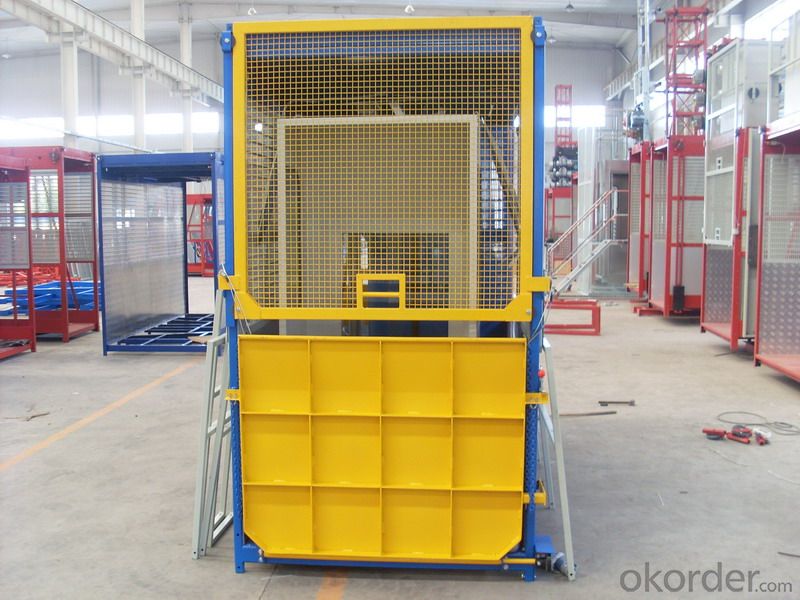
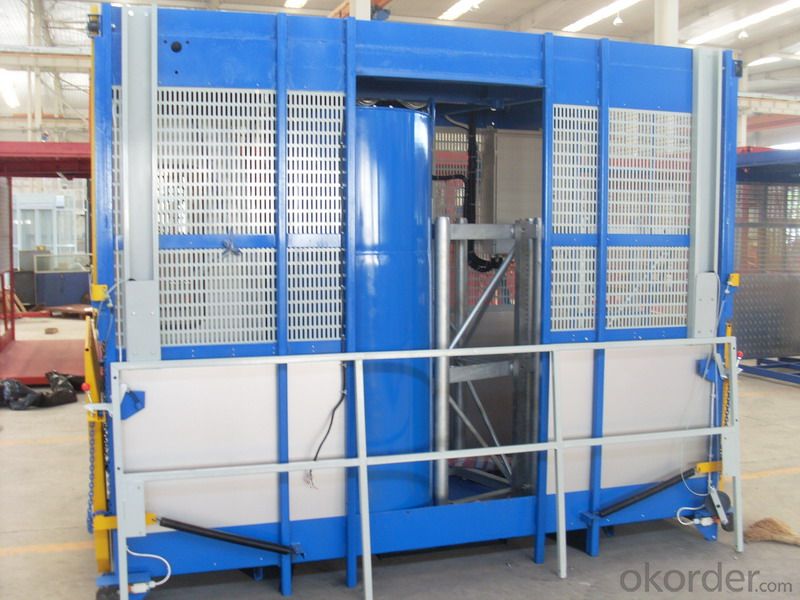
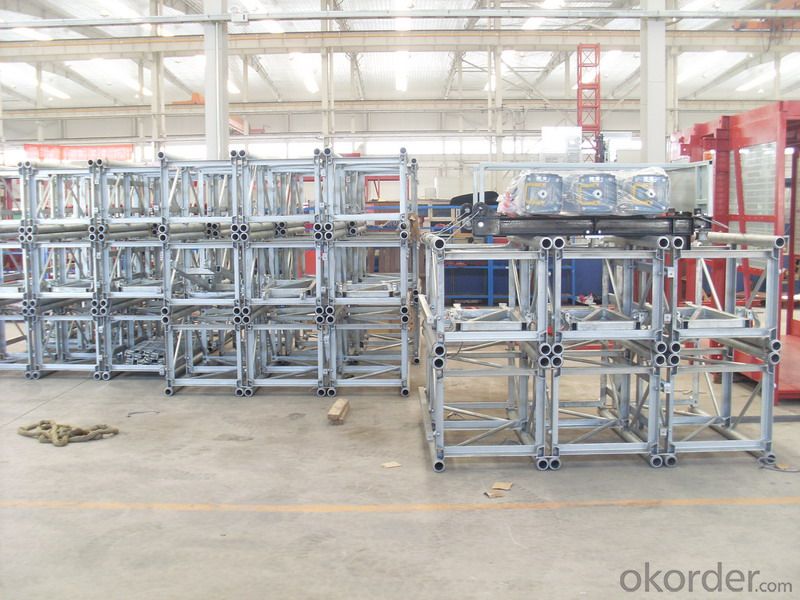
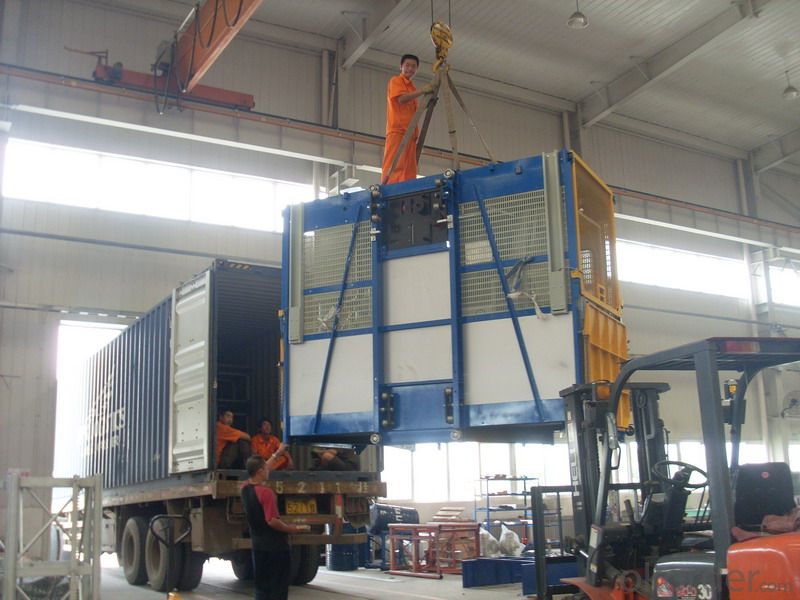
- Q: This question asks whether building hoists can be utilized in limited areas like rooms or tunnels.
- <p>Yes, building hoists can be used in confined spaces such as rooms or tunnels, but it depends on the specific design and size of the hoist. Compact and portable hoists are available for use in tight spaces. However, safety considerations, space dimensions, and the weight capacity of the hoist must be taken into account. It's crucial to ensure that the hoist is suitable for the confined area and that all safety protocols are followed to prevent accidents.</p>
- Q: This question asks for guidance on selecting an appropriate building hoist for construction purposes.
- <p>To choose a suitable building hoist, consider the following: 1) Capacity: Ensure the hoist can handle the weight of materials to be lifted. 2) Construction site conditions: Choose a hoist that fits the site's dimensions and layout. 3) Safety features: Opt for a hoist with safety mechanisms like overload protection and emergency stop. 4) Maintenance: Select a hoist that requires minimal maintenance to reduce downtime. 5) Cost: Compare prices and consider the total cost of ownership, including maintenance and operation. 6) Manufacturer reputation: Choose a reputable manufacturer for quality and after-sales support. 7) Compliance: Ensure the hoist meets local safety regulations and standards. Always consult with a hoist expert or the manufacturer for specific advice tailored to your project's needs.</p>
- Q: Why is the construction elevator open on one side and the other on the other
- Double door is feeding door, double door to the outside of the other's role is to prevent someone broke into the cage after elevator start circle accident, because outside over the door of the cage has a travel switch, when someone will ring into the cage opened the cage door, travel switch action at this moment, the elevator power cuts, you won't get elevator lay down this kind of thing. The door is open only when the lift is off the ground, as is said upstairs.
- Q: Can a building hoist be utilized to lift more than one object simultaneously?
- <p>Yes, a building hoist can be used to lift multiple objects at once, provided that the combined weight of the objects does not exceed the hoist's maximum load capacity. This is often done by securing all objects to a single lifting point or using a pallet or platform to hold the objects together. It's crucial to ensure that the hoist is rated for the total weight and that the objects are evenly distributed to maintain balance during lifting. Always follow safety guidelines and manufacturer's instructions to prevent accidents.</p>
- Q: This question asks if a building hoist can be utilized to lift various types of materials including wood, steel, and concrete.
- <p>Yes, building hoists are designed to lift a variety of materials. They are commonly used in construction to transport materials such as wood, steel, and concrete between different floors. However, it's important to ensure that the hoist is appropriately rated for the weight of the materials being lifted and that safety protocols are followed. Each material may require specific handling techniques or attachments to secure the load properly and prevent damage or accidents.</p>
- Q: This question asks for the different categories of hoists used in construction.
- <p>Building hoists are essential for the construction industry and come in various types. The main types include: 1. Material Hoists, which are used for lifting building materials; 2. Personnel Hoists, designed for transporting workers; 3. Goods and Passenger Hoists, which can carry both materials and people; 4. Temporary Hoists, used during the construction phase; and 5. Permanent Hoists, installed in buildings for long-term use. Each type has specific features and safety considerations tailored to their intended use.</p>
- Q: Describe the key differences between electric and manual building hoists.
- <p>Electric building hoists are powered by electricity and can lift heavy loads quickly and efficiently. They are automated, reducing manual labor and increasing productivity. On the other hand, manual hoists require human effort to operate, making them slower and less efficient. They are less costly but demand more physical labor, which can lead to fatigue and potential accidents. Electric hoists are suitable for large-scale construction projects, while manual hoists are often used in smaller, more confined spaces where electricity might not be readily available or where the load is not excessively heavy.</p>
- Q: What are the primary roles or purposes that a building hoist serves in construction?
- <p>Building hoists, also known as construction hoists, serve several essential functions in construction projects. They are primarily used for the vertical transportation of workers, materials, and equipment within a building under construction. They increase efficiency by reducing the time and effort required to move materials and personnel, ensuring a faster construction process. Hoists also enhance safety by providing a controlled and secure means of vertical transportation, reducing the risk of accidents associated with manual material handling. Additionally, they contribute to the overall project timeline by allowing for simultaneous work on multiple floors, improving the coordination of construction activities.</p>
- Q: This question asks about the method to determine the maximum weight a building hoist can safely support.
- <p>Calculating the maximum load capacity of a building hoist involves several factors. First, consider the hoist's mechanical design and the manufacturer's specifications, which provide the rated load capacity. This is the maximum weight the hoist is designed to handle. Next, assess the condition of the hoist, as wear and tear can reduce its capacity. Additionally, consider the strength of the supporting structure and the safety factor, which is typically a multiplier of the rated load capacity to ensure safety. For example, if the hoist is rated for 1000 kg, a safety factor of 1.5 means the actual maximum load should not exceed 667 kg (1000 kg / 1.5). Always consult with engineers and follow local regulations and standards for precise calculations.</p>
- Q: Construction site construction elevator and tower crane, which unit security check and acceptance?
- Different but most likely is the construction elevator
Send your message to us
Building Lifting Hoist SC Series General Hoist CE
- Loading Port:
- Shanghai
- Payment Terms:
- TT OR LC
- Min Order Qty:
- 1 unit
- Supply Capability:
- 1000 unit/month
OKorder Service Pledge
OKorder Financial Service
Similar products
Hot products
Hot Searches
Related keywords
